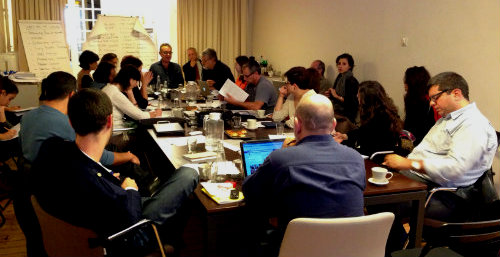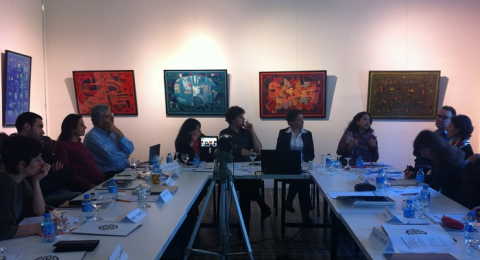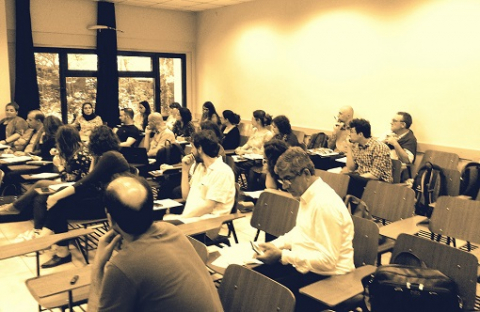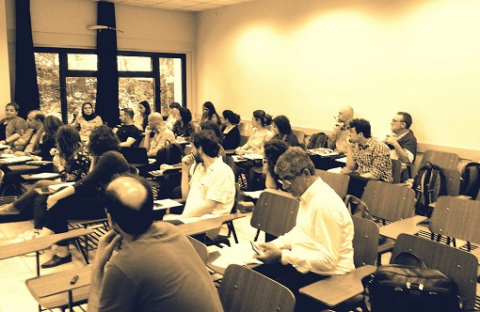
Workshop for a Regional Network on Reconciliation and Historical Dialogue
Hafiza Merkezi (Truth Justice Memory Center), in cooperation with Columbia University's Institute for the Study of Human Rights, has been developing a regional network on historical dialogue and accountability since 2012.
The region, the network aims to cover, expands from the Balkans to the Caucasus and from North Africa to the Middle East. Although this is not one of the pre-defined regions of the current geopolitics, the history of this region is closely linked.
The network will be modeled after the Alliance for Historical Dialogue and Accountability (AHDA) based at Columbia University's Institute for the Study of Human Rights (ISHR). AHDA is a convening body which aims to facilitate exchange among scholars, advocates, and organizations dedicated to historical dialogue and accountability.
As Hafıza Merkezi, in cooperation with AHDA and Columbia University Global Centers|Turkey, we held our first workshop for the establishment of the Reconciliation and Historical Dialogue Network (RHDN) on October 24-26, 2013 in Istanbul. We invited institutions from Cyprus, Armenia, Lebanon, Croatia, Palestine, Israel, as well as from Turkey whose work focuses on historical dialogue, reconciliation, peace, conflict resolution, human rights and transitional justice.
In total, 15 institutions were represented in the workshop. Besides the NGO's, the Columbia University's Institute for the Study of Human Rights (ISHR) and The Interdisciplinary Center for Innovative Theory and Empirics (INCITE) were present in the workshop. At the end of the two-day workshop the participants have declared their commitment to strengthening and deepening the Reconciliation and Historical Dialogue Network.
On its first day the workshop started with sessions dedicated to the representatives of each participant organization. These presentations provided the workshop with inspiring projects, experiences and approaches as well as important and enriching discussions regarding the challenges of working on conflict resolution in different countries in the region. Indeed, these discussions also underscored the intersections and similarities regarding the work of many of the practitioners present and provided evidence of how beneficial a regional network would be.
The second day started with a discussions session on the intellectual and political field of historical dialogue. During the discussions it was agreed on the fact that we can use historical dialogue mechanisms to advocate and facilitate peace processes, and we can use the content and the context without waiting for authorities or formal involvements and achieve our goals. Historical dialogue is about responsibility and not necessarily about legality. It can continue even in the absence of formal, legal, judicial processes, as long as there are willing parties of the conflict present. And it should be added that historical dialogue is not a substitute nor does it exclude other processes regarding conflict resolution. Likewise, it is not a pre-condition for another reconciliation process, but a tool for peace.
At the end of the second day the workshop participants discussed the initial projects of the network that would lead to both the deepening and strengthening of the network. Training programs for capacity building on areas like documentation, memorialisation, and joint-project development on historical dialogue are set among the priorities of the network.
We will continue to give news regarding the network from our web page. Please check this site for the updates.


